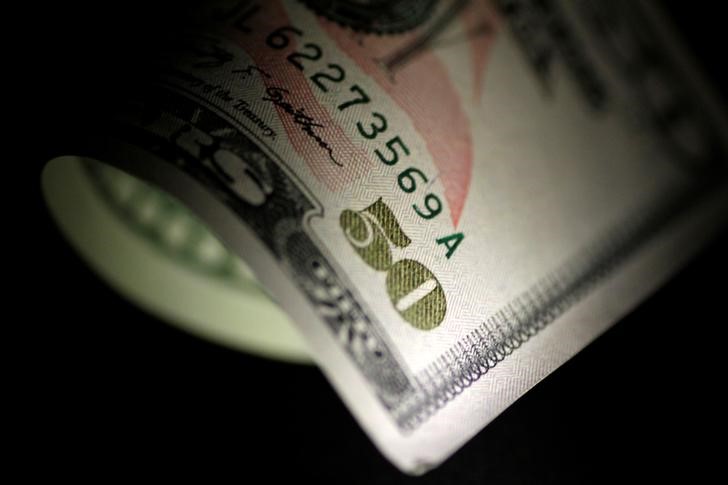Investing.com - The dollar fell against a currency basket on Thursday after the third Federal Reserve rate cut this year, as investors took indications of a potential pause in the easing cycle with a pinch of salt.
In lowering its key overnight lending rate by a quarter of a percentage point to a target range of between 1.50% and 1.75% the U.S. central bank dropped a previous reference in its policy statement that it "will act as appropriate" to sustain the economic expansion - language that was considered a sign for future cuts.
The lack of a clear indication from the Fed that it is done with easing for now was seen as less hawkish than expected, sending the dollar lower.
"The new, slightly shorter, statement tries to keep their options open and puts them back into a data-dependent mode, but circumstances could mean that they have less optionality than they think," said Tim Foster, portfolio manager at Fidelity International in London.
The U.S. dollar index was down 0.3% at 97.11 by 04:33 AM ET (08:33 GMT), its lowest level in a week.
The euro was up 0.14% to 1.1164, while the greenback last traded at 108.61 yen, 0.2% lower on the day.
The dollar was pressured lower against the safe-haven yen by the news that Chile has withdrawn as host of an APEC summit in November where the U.S. and China had been expected to take major steps towards resolving their protracted trade war.
Hopes that the world's largest economies would soon agree on a partial deal has boosted risk appetite this week.
“The fact that Chile has cancelled the mid-November APEC Summit should not be a deal breaker for the U.S. and China to reach a truce," said Tai Hui, Asia chief market strategist at JPMogan Asset Management in Hong Kong.
"If the two sides were genuinely willing to reach an interim deal before mid-December, when the next scheduled hike in tariff on Chinese exports is due to take place, they will find a venue to get the deal done."
The Bank of Japan kept its monetary policy steady on Thursday but introduced new forward guidance to more clearly signal the future chance of a rate cut, underlining its concern over global economic risks.
The British pound pushed higher after Prime Minister Boris Johnson won parliamentary approval on Wednesday to hold a general election in December.
--Reuters contributed to this report
